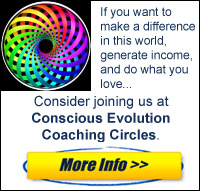Ye shall know them by their fruits. Matt. 7:16.
A friend recently asked a fascinating question: “How do I respond to people whose actions are cruel and hurtful but who say that what they are doing is part of their greater purpose?”
This question has so many aspects. Like so many other things in life, the answers become clearer when we ask clearer questions. Let’s explore a few.
Are the people who say they are living their greater purpose being cruel and hurtful to you or to others?
If to you, by all means find a way of protecting yourself. You serve neither yourself nor others by staying in the relationship and allowing yourself to be abused.
There is always a cooperative dynamic going on between an abuser and a victim. The abuser needs to hurt others to temporarily increase his feelings of power and importance. (Abusers are people with low self-esteem.) The victim indirectly supports the abuse by maintaining the relationship and making herself available to be abused.
If you choose to remain in an abusive relationship for whatever reason, get clear on why you are staying. Are you financially dependent on the abuser? Do you have children together? Is your own self-esteem so low that you think you can’t survive without this relationship? Do you love and trust too much? Do you believe in commitment at all costs?
Once you get clear on why you are staying, you will also be clear on what really matters to you. Maybe it’s financial self-sufficiency. Maybe it’s your children. Then you can find other ways to manifest what matters without having to subject yourself to abuse. While you may choose to stay temporarily, you can begin to plan your escape.
If you do stay, you will have to make moment-to-moment choices about how to respond to the abuse. What kind of abuse is it? Verbal put-downs? Screaming? Throwing objects? Hitting? Rape? All are potentially damaging, but you’re not going to change the abuser directly. Your power and effectiveness lie in changing yourself.
By changing yourself, the dynamics of your relationship with the abuser change. As a result, you may change him indirectly. Changing the abuser cannot, however, be your motivation. Aim instead to improve your own life and to focus on the things that matter to you personally.
Whatever you do, keep a calm head, make your own choices, and don’t allow the abuser to suck you into his game. You will only escalate the ugliness.
Can you say, “Please stop that. I don’t like it when you act that way?” Can you say, “You seem very angry. What is it you need? I’d be happy to help if I can.” Can you simply walk away? There are shelters for abused women. (Are there also shelters for abused men?) Or do you want to learn krav maga, karate, or other self-defense techniques?
If you are perceiving others as victims, you are in much trickier and more difficult dynamics. Instead of one relationship, there are now three: Abuser to victim, you to abuser, and you to victim.
Again you simply have to make moment-by-moment choices as to how you are going to respond depending on the resources you have available (time, money, energy) and the context of the situation. Do you confront the abuser? Do you encourage the victim to stop enabling a dysfunctional relationship? Do you detach and allow the abuser and victim to work through their relationship and personal growth issues on their own?
There is something else going on here. Sometimes pain is necessary for growth.
When I think of my own life, it was only when I felt driven to divorce that I developed the courage to became a lawyer. It was only when I was filled with terror that I was willing to humble myself and ask for help from a Power I couldn’t see or understand. It was only when I was horribly abused that I learned to take care of myself first and others second. It was only when I lived in a no-recourse culture (the police and legal systems were totally ineffective) that I learned self-preservation, fortitude, creativity and patience. It was only when I became so angry that I could have murdered that I learned how to shift my focus away from things that anger me to people and environments that bring me peace.
As far as people saying they are living their greater purpose, how do they know? Why should you believe them? What do you believe? About them? About yourself?


Comment